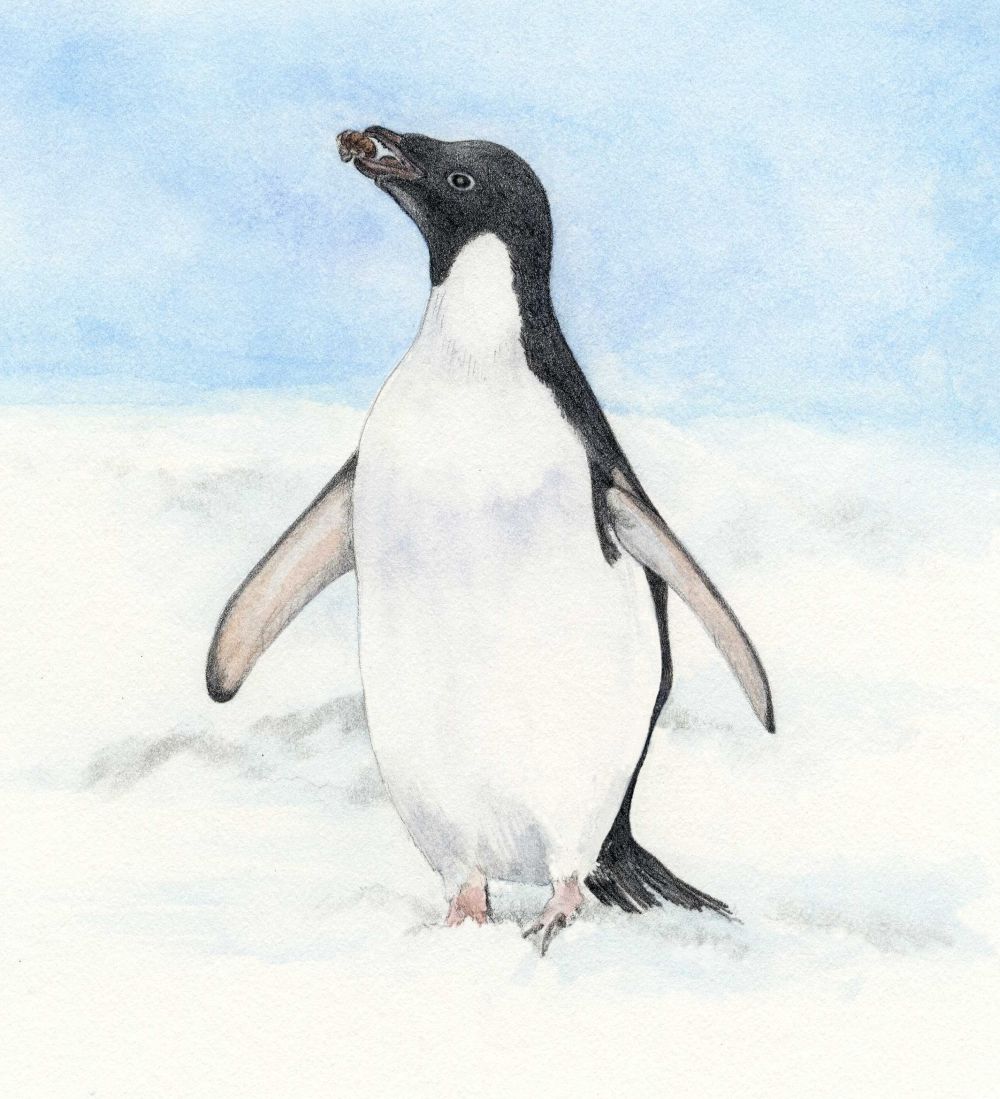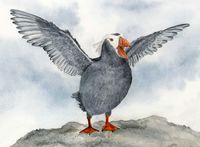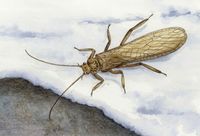
Adelie Penguin
Latin name: Pygoscelis Adeliae ,Conservsation status: near threatened (population is increasing)
Even though they can't fly, to avoid predators Adélie Penguins are able to leap almost ten feet out of the water and land safely onto rocks. They follow the sun from their breeding colonies to winter feeding grounds, travelling an average of 8,000 miles a year.
In winter, the sun doesn't rise south of the Antarctic Circle. If Antarctic sea ice decreases and does not extend far enough to the north, Adélie Penguins, during their winter migration, may not be able to reach the sunlight needed to navigate, hunt and avoid predators—they won't dive in the dark. Other threats are oil pollution, fishing and disturbance of colonies from research stations and aircraft.
Other animals effected by climate change
 Tufted Puffin
Tufted PuffinTufted Puffins are threatened by sea level rise and storm surges which destroy habitats and breeding areas. In some areas of North America warming seas are causing the fish that the Puffins feed on to migrate farther north, making it difficult for them to find adequate food. Other threats are entrapment in fishing nets, oil spills, pollution, ingestion of plastic, human disturbance of breeding colonies and introduced predators such as rats and foxes.
 Beluga
BelugaBelugas live in Arctic and Sub-Arctic waters. Impacts from climate change include: an increase in ship traffic as sea ice declines, oil exploration and extraction, fisheries by-catch, and disruption of the food web. As Arctic waters warm and currents change, the Humpback (a competitor) and the Orca (a predator) may move north and stay longer. Some Beluga populations are also threatened by hunting, pollution and habitat loss.
 Narwhal
NarwhalThe Narwhal lives mainly in the Atlantic Arctic. Because of specialized habitat, narrow range and limited diet (Arctic cod and halibut), it is one of the Arctic species most vulnerable to climate change. The Narwhal breeds in bays and fjords, moving offshore during winter to areas of heavy ice pack, breathing through the few cracks. Sudden or extreme temperature change can cause these cracks to freeze shut, trapping the whales. Other threats are illegal hunting, industrial activities, and risks from oil development, exploration and shipping in the Arctic.
 Western Glacier Stonefly
Western Glacier StoneflySince 1960, the average summer temperature in Glacier National Park has increased by around 1 °C and glaciers have declined by 35%. By counting Stoneflies, scientists can determine how quickly glaciers are melting and the temperature of streams. In a two year search begun in 2011, scientists found the Stonefly in only one of the six streams it had previously occupied and discovered that it had retreated to two different streams at higher altitudes. Satellite data confirm that the world’s glaciers are declining, affecting the availability of fresh water for humans, animals and plants, and contributing to sea level rise.
